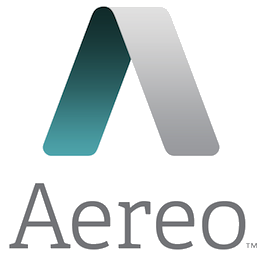In cable television, governments apply a must-carry regulation stating that locally licensed television stations must be carried on a cable provider's system.

Universal City Studios, Inc. v. Corley, 273 F.3d 429, was a court ruling at the United States Court of Appeals for the Second Circuit. The ruling was the first significant test of the anti-circumvention provisions of the Digital Millennium Copyright Act.
Superstation is a term in North American broadcasting that has several meanings. Commonly, a "superstation" is a form of distant signal, a broadcast television signal—usually a commercially licensed station—that is retransmitted via communications satellite or microwave relay to multichannel television providers over a broad area beyond its primary terrestrial signal range.

A&M Records, Inc. v. Napster, Inc., 239 F.3d 1004 was a landmark intellectual property case in which the United States Court of Appeals for the Ninth Circuit affirmed a district court ruling that the defendant, peer-to-peer file sharing service Napster, could be held liable for contributory infringement and vicarious infringement of copyright. This was the first major case to address the application of copyright laws to peer-to-peer file sharing.

In re Aimster Copyright Litigation, 334 F.3d 643, was a case in which the United States Court of Appeals for the Seventh Circuit addressed copyright infringement claims brought against Aimster, concluding that a preliminary injunction against the file-sharing service was appropriate because the copyright owners were likely to prevail on their claims of contributory infringement, and that the services could have non-infringing users was insufficient reason to reverse the district court's decision. The appellate court also noted that the defendant could have limited the quantity of the infringements if it had eliminated an encryption system feature, and if it had monitored the use of its systems. This made it so that the defense did not fall within the safe harbor of 17 U.S.C. § 512(i). and could not be used as an excuse to not know about the infringement. In addition, the court decided that the harm done to the plaintiff was irreparable and outweighed any harm to the defendant created by the injunction.
FilmOn is an Internet-based television provider owned by FilmOn.TV Networks Inc. Alki David had founded FilmOn.TV Networks in 2006. The company was involved in a prolonged legal case concerning streaming rights with CBS, Fox, and NBC between 2013 and 2017, with FilmOn ultimately settling.

Jacobsen v. Katzer was a lawsuit between Robert Jacobsen (plaintiff) and Matthew Katzer (defendant), filed March 13, 2006 in the United States District Court for the Northern District of California. The case addressed claims on copyright, patent invalidity, cybersquatting, and Digital Millennium Copyright Act issues arising from Jacobsen under an open source license developing control software for model trains.

Perfect 10, Inc. v. Amazon.com, Inc., 508 F.3d 1146 was a case in the United States Court of Appeals for the Ninth Circuit involving a copyright infringement claim against Amazon.com, Inc. and Google, Inc., by the magazine publisher Perfect 10, Inc. The court held that framing and hyperlinking of original images for use in an image search engine constituted a fair use of Perfect 10's images because the use was highly transformative, and thus not an infringement of the magazine's copyright ownership of the original images.

The Digital Millennium Copyright Act (DMCA) is a 1998 United States copyright law that implements two 1996 treaties of the World Intellectual Property Organization (WIPO). It criminalizes production and dissemination of technology, devices, or services intended to circumvent measures that control access to copyrighted works. It also criminalizes the act of circumventing an access control, whether or not there is actual infringement of copyright itself. In addition, the DMCA heightens the penalties for copyright infringement on the Internet. Passed on October 12, 1998, by a unanimous vote in the United States Senate and signed into law by President Bill Clinton on October 28, 1998, the DMCA amended Title 17 of the United States Code to extend the reach of copyright, while limiting the liability of the providers of online services for copyright infringement by their users.

Cartoon Network, LP v. CSC Holdings, Inc., 536 F.3d 121, was a United States Court of Appeals for the Second Circuit decision regarding copyright infringement in the context of DVR systems operated by cable television service providers. It is notable for partially overturning the Ninth Circuit precedent MAI Systems Corp. v. Peak Computer, Inc., regarding whether a momentary data stream is a "copy" per copyright law.

Viacom International, Inc. v. YouTube, Inc., 676 F.3d 19, was a United States Court of Appeals for the Second Circuit decision regarding liability for copyright infringement committed by the users of an online video hosting platform.

Ivi Inc. also called Ivi, is a Seattle-based American corporation which offers a software application providing live video streaming over the Internet for a flat rate. Ivi is the first online cable company. The Ivi TV player is a downloadable software application that runs on Windows, Macintosh, or Linux computers that offers live television over the Internet.

Satellite Broadcasting and Communications Association v. FCC, 275 F.3d 337 was a case decided by the United States Court of Appeals for the Fourth Circuit. Congress required satellite television carriers to carry all requesting local broadcast stations in the market where the carrier voluntarily decides to carry one local station in order to, in part, preserve a multiplicity of local broadcast outlets for over-the-air-viewers who do not subscribe either to satellite or cable service.

Aereo was a technology company based in New York City that allowed subscribers to view live and time-shifted streams of over-the-air television on Internet-connected devices. The service opened to customers in March 2012, and was backed by Barry Diller's IAC.
Warner Bros. Entertainment v. WTV Systems is a 2011 copyright infringement case decided in United States District Court, C.D. California.
Fox Broadcasting Co. v. Dish Network, LLC is a copyright case in which the United States District Court for the Central District of California, by granting partial summary judgment, denied most parts of the copyright claims presented by Fox Broadcasting Company (Fox) against Dish Network (Dish) for its service, a DVR-like device that allowed users to record programming that could be accessed later through any Internet-connected device. The service offered by Dish also allowed users to record any or all Fox's prime-time programs and to automatically skips commercials (AutoHop).
American Broadcasting Cos., Inc. v. Aereo, Inc, 573 U.S. 431 (2014), was a United States Supreme Court case. The Court ruled that the service provided by Aereo, which allowed subscribers to view live and time-shifted streams of over-the-air television on Internet-connected devices, violated copyright laws.

Twentieth Century Fox Film Corp v. iCraveTV, 2000 WL 255989, was a court case in the United States District Court for the Western District of Pennsylvania which enjoined iCraveTV, a Canadian TV streaming website, from operating within the US after finding it in violation of 20th Century Fox's, and several other motion picture studios and television networks, copyrights and trademarks. Granted February 8, 2000, this injunction, along with continued legal pressure, led to the iCraveTV's demise just 3 months after its debut. As of March 28, 2019, the library is included due to Disney's acquisition of 21st Century Fox.

Locast was an American non-profit streaming television service that allowed users to view live streams of over-the-air television stations. The service was founded by attorney David Goodfriend under the banner of the Sports Fans Coalition.
Equals Three, LLC v. Jukin Media, Inc., 139 F. Supp. 3d 1094 was a copyright infringement lawsuit where the court evaluated if commenting on humorous videos in a transformative manner is fair use or exploiting videos for their humor without paying for their use.










